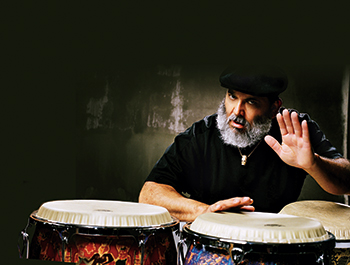[tabs style=”default” title=”Showcase”] [tab title=”Book Excerpt”]Giving Thanks
The following is an excerpt from “Choosing Gratitude 365 Days a Year” by James A. Autry and Sally J. Pederson (Smyth & Helwys Publishing Inc., 2013), used by permission from the authors. The book is available at The Book Store and Beaverdale Books.
January 2
My husband and I were cleaning out an old chest of drawers when we came across a forgotten stack of handwritten letters. What a treasure trove.
The airmail letters, postmarked from Italy in 1987 through 1989, were sent to us from a couple whose corporate assignment had taken them to Parma for three years.
It was a joy to reread these letters, journaling the adventures and challenges our friends encountered in setting up hearth and home for themselves and two young children, all while learning a new language and culture. Much of the content was about everyday experiences, but poignant passages described the stress and strain involved in adjusting to a new life abroad. It was clear that our friendship and constancy was in some ways a tether for them during tumultuous times.
We visited them once while they were in Italy, and they returned to Des Moines after their three-year stint. Over the next twenty-five years, we grew to be the closest of friends, engaged in the lives of one another’s children and supporting one another through life’s many milestones—children’s bar mitzvahs and weddings, the death of parents, our own birthdays and anniversaries.
None of us knows who will be our lifelong friends until we look back from the vantage point of age. But reading these letters that recounted the early years of our friendship made the likelihood of our deep enduring bond seem inevitable.
Who in your life are the blessed friends for whom you are grateful? —SJP
January 7
“Two kinds of gratitude: the sudden kind we feel for what we take; the larger kind we feel for what we give.” (Edwin Arlington Robinson)
It took me a while to understand the old saying that giving is better than receiving. I think it happened when I finally comprehended that those to whom we give something—money, goods, or love—are giving us that privilege by their willingness to accept something from us.
Do you feel privileged and grateful when you give to others? —JAA
January 12
In going through an old trunk belonging to my late mother. I came across a stack of diaries that covered several years. They were written by my late stepfather, a gentle man, school teacher, and self-directed scholar. I started looking through them and found that the entry for every day—every day!—began with these words: “This is the day the Lord hath made; let us rejoice and be glad in it.” You may recognize those words from the 118th Psalm. It strikes me that beginning every day by rejoicing is the same as beginning every day in the spirit of gratitude.
Rejoice today and be grateful.
—JAA
January 22
It’s common to see a jigsaw puzzle, in some state of assembly, on the table in our library. Our son Ronald loves to work on puzzles and does so with laser-like concentration. He seldom tackles anything with fewer than 1000 pieces. One time he spent an entire year meticulously assembling a life-sized grandfather clock with thousands of deep mahogany-colored pieces and an actual working clock.
When Ronald was young, he would object if anyone tried to join him. But now he often asks me to help with the puzzle, and we visit in a relaxed manner while we work. Ronald’s method is trial and error, simply fitting one piece against another until he gets a match. I study the photo on the box and look for pieces according to the picture. I don’t think my system is any faster than his, but our minds work differently. Considering that he has autism and I do not, that is no surprise. Yet it strikes me that our different approach to solving jigsaw puzzles is a metaphor for the different ways our brains perceive the world—I can see the big picture; Ronald is focused on an intricate detail without making sense of the whole. Is it any wonder that the logo used by the Autism Society of America and Autism Speaks is a lone puzzle piece?
The human puzzles in our life can be rich with wonder and joy. Be grateful for the things that are beyond our earthly understanding. —SJP
February 2
I have a dear friend, David Jordan, with whom I worked in the magazine business for more than 30 years. We started at the same company within six months of one another. He was a former Navy officer; I was a former Air Force officer. David is extraordinarily talented and also a decent and compassionate human being. A few years ago, I learned that he was volunteering in the neonatal unit of a local hospital. His job: to hold the babies from time to time. I asked him about it. “Some of these babies,” he said, “don’t have any family that comes to hold them, and newborns need that connection. The hospital people don’t have enough time to do it all, so I try to help.”
I was very moved by the image of this large man holding these tiny babies in their tenuous grasp on life, and I felt grateful that he was doing it.
Take time to say a prayer of gratitude for the people who work to help the helpless. —JAA
February 27
“The bitterest tears shed over graves are for words unsaid and deeds left undone.” (Harriet Beecher Stowe)
Regret is a wasted emotion unless it moves us to rectify what we regret. It’s the old curse of “woulda, coulda, shoulda” of what we did or failed to do, what we said or failed to say. In every one of these situations, the time comes when it is too late to do anything about them, and at that point it is meaningless to live in regret. I think a life of gratitude leads us to appreciate whatever opportunities we have to make amends for whatever we regret, and if there is no longer the opportunity, then to leave regret behind with the resolve simply to learn the lesson and to do better next time.
Is there anything you regret today? Think about what you might do or say so that you can leave the regret behind and focus on gratitude. —JAA[/tab] [tab title=”Art”]
Untitled photo by Kelly Norris, 2010. Norris, horticulture manager at the Greater Des Moines Botanical Garden, shot this photo in the front yard of his apartment complex when he lived in Ames. “I’m fascinated by hoarfrost,” he says. “For whatever reason, I was fascinated with the saturation of the fruit—they glowed on an otherwise sullen afternoon.
I don’t have profound regard for crabapples, but what polite indifference I do have I probably gained from that tree. I lived in that apartment for four years and watched this battered, badly pruned tree manage to thrive in spite of itself.” He adds that he’s always in search for “alternatives to ordinary,” but that “this everyday plant more than once gave me cause for pause, even if I often thought about suggesting to my realty company that it should be replaced.”[/tab] [/tabs]









